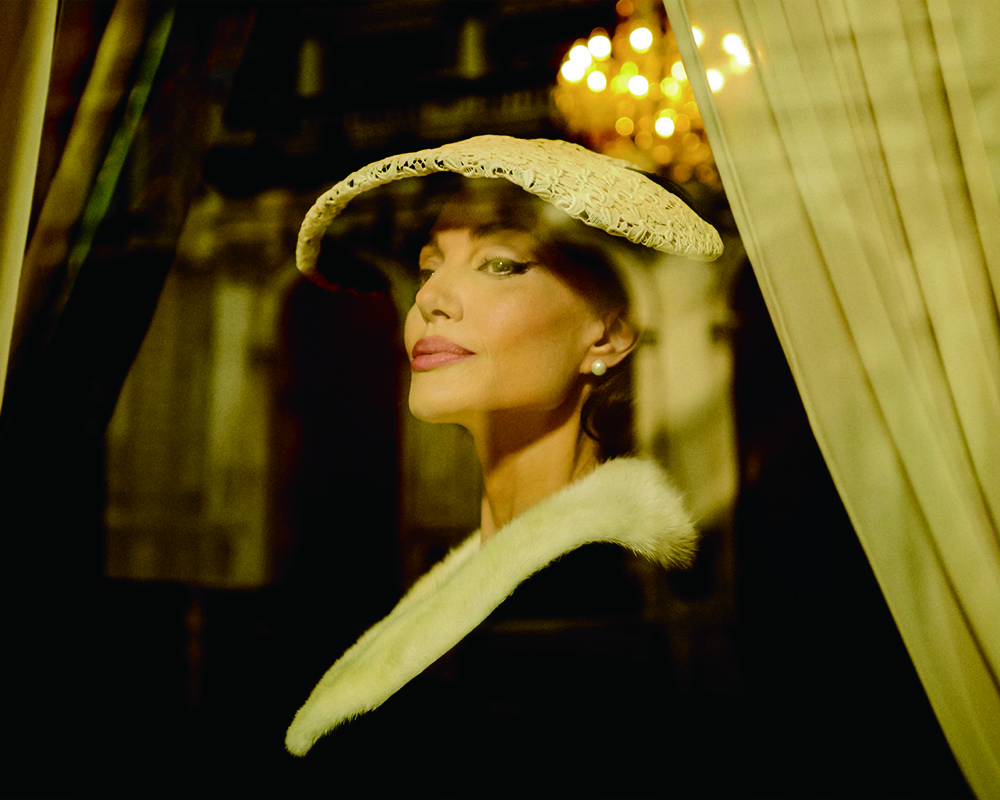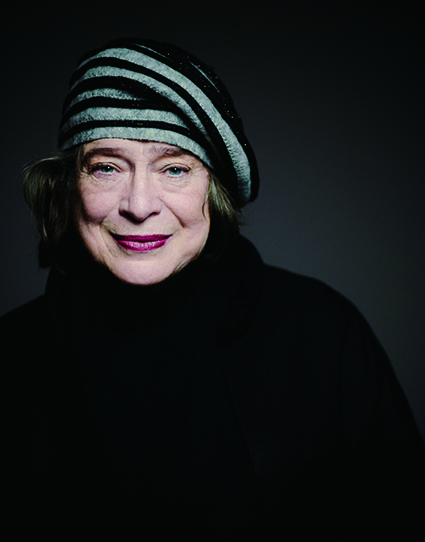노먼 레브레히트 칼럼 코로나19, 재앙인가 기회인가
기사 업데이트 시간: 2021년 2월 15일 9:00 오전
코로나19, 재앙인가 기회인가
COVID19 – catastrophe, or opportunity?
코로나가 바꾼 공연장 풍경, 새 시대의 기준이 되다
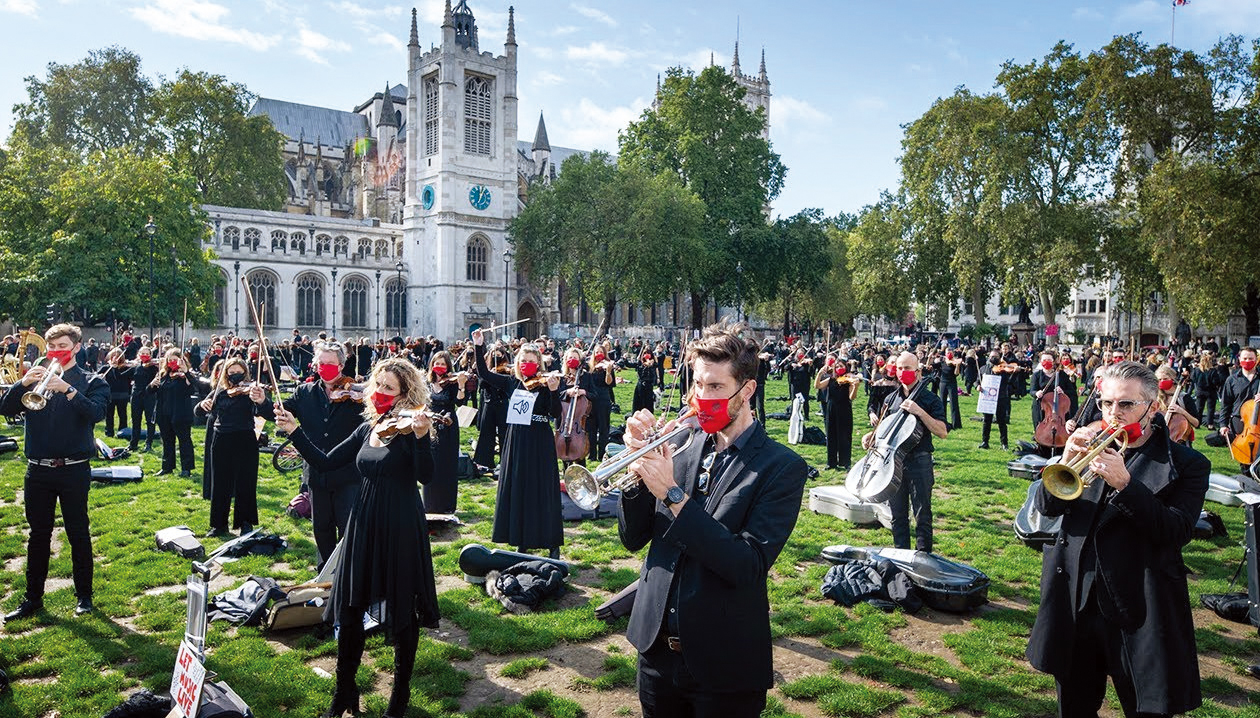
런던 의회 광장에서 시위 중인 음악가들 ©The Telegraph
코로나19가 지배한 작년을 되돌아보는 관점에는 두 가지가 있다. 음악계와 음악가들에게 지난 한해는 지독한 재앙이었으며, 다른 한 편으로는 역사상 최고의 기회이기도 했다. 낙관주의자인 나는 후자라고 본다.
물론 피해를 과소평가해서는 안 된다. 상당수의 클래식 음악 청중이 사라졌고 다시 돌아오지 않았다. 지난 늦여름 산발적으로 몇몇 공연이 재개됐지만 70대 이상의 관객은 찾을 수 없었다. 통계적으로 가장 많은 수를 차지하던 연령대이자 가장 부유한 계층이었지만 이들에겐 생존이 먼저였다. 많은 후원자가 도시 생활을 청산하고 고향으로 돌아갔고, 뉴욕의 구독자들은 도망치듯 사라졌다. 올 9월까지 미국의 음악계는 적막할 것이고, 음악이 다시 돌아온다고 하더라도 텅 빈 좌석만이 남아있을 것이다.
기관들은 한 해의 수입을 전부 잃었다. 음악가들은 남은 재직 기간 동안 빚을 갚으며 살아야 할 것이다. 급여를 받지 못한 연주자와 상당한 연봉을 받은 오케스트라의 리더 사이에는 씁쓸함만이 감돌고 있다. 음악감독들은 직무를 저버리고 홀로 탈출한 선장과도 같다. 이들 중 일부는 이전처럼 돌아갈 수 있을 것처럼 행동하지만 그건 최악의 시나리오라고 할 수 있다.
현재 클래식 음악계는 1990년대 ‘러스트 벨트(Rust Belt)’와 닮았다. 자동차 판매가 곤두박질친 미국의 오하이오주나 마거릿 대처 총리 시대 이후의 영국 중서부 지방과 같이, 희망도 영광도 존재하지 않는 지대가 된 것이다. 오케스트라는 투어를 통해 자신의 상품인 음악을 수출하려고 애쓰겠지만, 스트리밍이 보편화된 세대는 집에서 빈 필하모닉 공연을 감상할 수 있는 시대에 더 이상 현지 투어를 온 필라델피아 오케스트라의 공연 티켓을 구매하지 않을 것이다.
투어가 사라지면 지속할 수 있는 일거리도 사라진다. 런던 오케스트라들 사이의 생존 경쟁에서 살아남는 사람은 점점 더 줄어들 것이고, 예술 위원회의 보조금이 삭감되며 극소수만 남게 될 것이다. 제2차 세계대전 당시 국민의 사기 진작에 앞장섰던 BBC는 코로나 시대 동안 예술 분야에서 실패를 거듭했다. 아무리 낙관적으로 보아도 미래에는 상당 부분이 축소된 삶이 펼쳐질 것이다.
미국의 경우, 음악계 거물들이 형편없는 모습을 보여주고 있다. 코로나가 발병하자 메트로폴리탄 오페라는 단원들에게 임금의 30% 삭감을 강요하며 월급을 주지 않았다. 협상 중에 무대 담당자들이 출근하지 못하도록 건물을 폐쇄하기도 했다. 오케스트라 단원들은 음악을 연주하는 대신, ‘재발견된’ 소수의 작곡가 및 다양성 책임자들(Chief Diversity Officer)과 함께 정치적 행동을 취하고 있다. 실황 연주는 유튜브에서 볼 수 있는 옛 세피아 톤의 영상처럼 서서히 사라지고 있다.
전성기를 견인한 사람들
그런데도 내가 미래에 대해 낙관적인 이유는 무엇일까? 그것은 바로 코로나19가 예술을 무관심의 영역으로 몰아붙이던 허영심과 관행을 바로 잡을 수 있는 일생일대의 기회를 주었기 때문이다.
클래식 음악이 대중의 인지도에서 얼마나 벗어났는지를 확인하고 싶다면 택시 기사에게 클래식계 유명인사를 물어보면 된다. 아마 피아니스트 랑랑이 전부일 것이다. 30년 전이었다면 파바로티, 키리 테 카나와, 게오르그 솔티, 예후디 메뉴인, 제시 노먼 외에도 수십 명은 더 나왔을 텐데 말이다. 인기의 측면에서 보자면 클래식 음악은 완벽히 실패했다. 시스템은 토요일 밤 고정 TV쇼를 꿰찰 수 있을 만한 인재를 길러내는 데 실패했으며, 전설적인 ‘3대 테너’는 다시 나올 수 없을 것이다. 하지만 새로 시작하기에 밑바닥은 그리 나쁜 출발선은 아니다.
내가 취미로 공연을 보러 다니기 시작했던 20대에는 로열 페스티벌 홀에 내 나이 또래가 대부분이었고, 다들 지휘자가 제대로 하는지 확인하기 위해 미니어처 악보를 들고 다녔다. 우리는 오케스트라 뒤쪽의 가장 저렴한 좌석에 앉았고, 홀을 만석으로 채워야 하는 임무를 지닌 외발의 병원 관계자 프랭크에게 구걸해 얻은 티켓으로 입장한 수련의와 간호사들도 마찬가지였다. 클래식 음악은 데이트 상대에게 어필하기 좋은 방법이기도 했다. 그랬던 우리에게 대체 무슨 일이 일어난 걸까?
답은 간단하다. 우리는 결혼을 했고 아이를 낳았으며, 음악은 그런 우리에게 흥미를 잃었다. 교회와 유대교 회당은 아이들을 돌봐 주었지만 공연장은 그렇지 않았다. 우리의 좌석은 여유로운 수입이 있는 백발의 노인들에게 돌아갔고, 학생들은 노년층이 지배하는 공간에 대해 불편을 느꼈다. 그 누구도 죽음을 맞이하고 있는 청중에 대한 통계적 접근을 하지 않았다.
공연의 새로운 표준
지금이야말로 미래를 복구할 기회이다. 젊은 세대에게 합리적인 가격의 티켓과 한 시간의 육아 휴식을 제공하면 이들은 빠르게 돌아올 것이다. 공연은 이전에 비해 어쨌든 더 짧아질 테고, 코로나 시대에 부과된 90분의 공연 시간제한은 새로운 표준이 될 것이다. 청중들은 바 앞에 늘어선 긴 줄과 인터미션으로부터의 해방을 환영하고 있다.
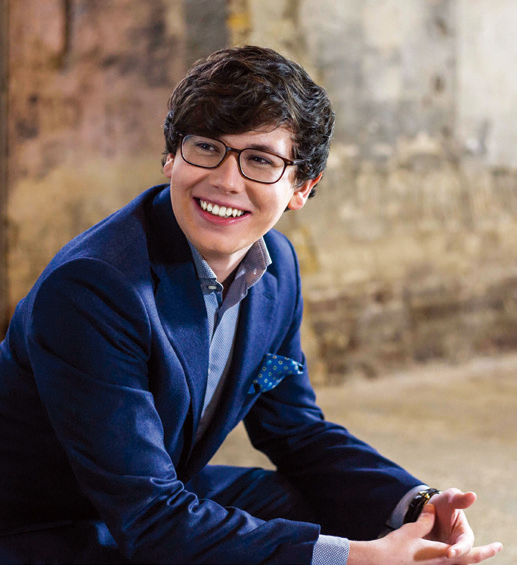
마틴 제임스 바틀릿 ©Paul_Marc_Mitchell
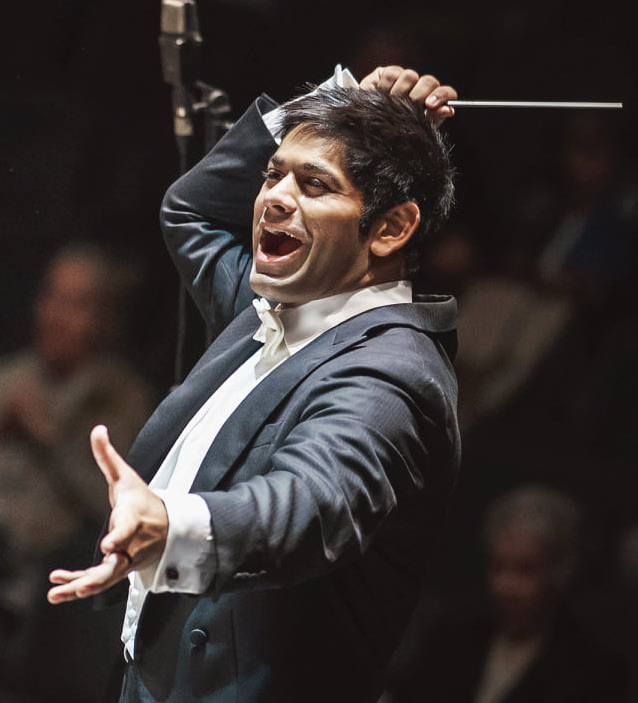
알페시 초한 ©Michele Monasta
위기는 기회인가? 아시아계 영국인 알페시 초한은 버밍엄 오페라 음악감독으로 영입되었고, 마틴 제임스 바틀릿은 도시봉쇄령 기간 동안 작곡가에게 음악을 배웠다
짧아진 공연으로 리허설 시간을 절약하면 오케스트라는 같은 공연을 하룻밤에 두 번 연주할 수도 있다. 공연 시간에는 새로운 근무 습관이 반영될 것이다. 오전 9시부터 오후 5시까지 사무실에서 근무하던 시대는 끝났다. 코로나19를 겪으며 대부분 재택근무와 지구 반대편에 있는 파트너의 비즈니스 시간에 맞춰 일하는 것에 익숙해졌다. 하룻밤에 두 번의 공연은 더 광범위한 근로시간을 갖게 된 청중에게 적합할 것이다. 짧아진 공연 방식은 좋아하는 한 곡을 듣기 위해 그다지 좋아하지도 않는 두 곡을 들으며 앉아있었던 지난날이 끝났다는 것을 의미하기도 한다. 더 이상 이전과 같을 필요는 없다.
음악감독 역시 최대치에 도달했다. 오케스트라들은 한 시간 만에 공연장에 올 수 있고 격리 기간에 영향을 받을 일이 없는 현지 지휘자를 섭외하여 ‘상주 지휘자’라는 새로운 자리를 내주었다. 이제 로컬이 새로운 글로벌이 됐다. 코로나19 방역 수칙이 완화되며 하루 이틀 전에 안내되는 게릴라 공연도 인기를 검증받고 있다.
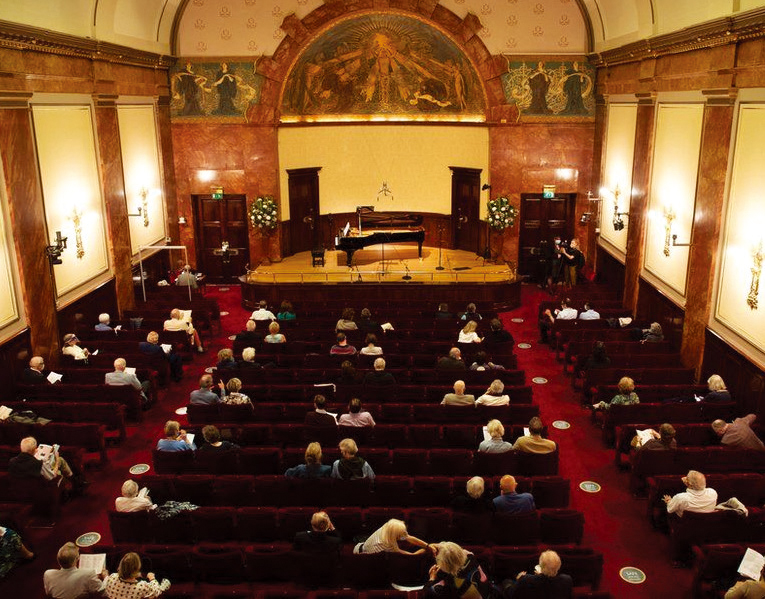
객석 거리두기를 한 런던 위그모어홀 ©PA MEDIA
카네 메이슨 가족은 로컬라이제이션 즉, 현지화의 증거이다. 영국 해리 왕자와 메건 마클의 결혼식에서 첼리스트 세쿠의 연주를 통해 세간의 주목을 받았던 중부 소도시의 카네 메이슨가(家)는 다양한 배경의 젊은 청중을 매혹시키던 열정을 모아 실내악단으로 변신했다. 현재 세쿠는 영국 오케스트라 절반의 메인 공연을 장식하고 있으며 미국에도 진출했다. 버밍엄 오페라는 버스로 몇 정류장 거리에 사는 넘치는 재능을 가진 아시아계 영국인 알페시 초한(1990~)을 음악감독으로 영입했다. 24세의 피아니스트 마틴 제임스 바틀릿(1996~)은 도시봉쇄령 기간을 활용해 또래 작곡가들에게 음악을 배웠다. 이제 좀 감이 오는가? 우리는 바로 지금, 혁명의 시작을 목격하고 있다.
오래된 음악 산업은 파탄의 길을 걷고 있고 상당수가 그 길을 따르게 될 테지만, 부티크 에이전시들은 속속 새로운 수완을 선보이고 있다. 로열 오페라 하우스는 라디오 방송국 ‘스칼라 라디오’로 젊은 세대를 겨냥하고 있다. 새로운 교전 수칙은 모두 준비됐다. 카를 마르크스는 쇠사슬을 잃은 대신 세상을 얻을 것이라 말했다. 지금까지 언급한 것들이 대기업을 무너뜨리고 새로운 산업의 꽃을 피울 것이라 장담할 수는 없지만, 이번이 현존하는 이들이 기억할, 변화를 위한 최고의 기회다. 이 기회를 잡지 못한다면 클래식 음악은 영원히 사라질 것이다. 번역 김진
Covid-19 – catastrophe, or opportunity?
노먼 레브레히트 칼럼의 영어 원문을 함께 제공합니다
There are two ways of looking back on the Covid year. It was either an unmitigated catastrophe for music and musicians, or the greatest opportunity in history. Ever an optimist, I take the latter view.
Let’s not belittle the damage, though. A large chunk of the classical audience has vanished, never to reappear. When scattered concerts resumed in late summer, the over-70s were gone. They used to be the biggest demographic and the wealthiest but survival came first. Many donors quit the city for country homes. New York subscribers fled. Music will be silent in America until September 2021. When it returns, there will be empty rows.
Institutions have lost a year’s revenues. Musicians will spend the rest of their careers paying off loans. Bitterness has broken out in orchestras between unwaged players and highly paid bosses. Music directors abandoned ship. Some pretend that things will go back to how they were, which would be the worst of all scenarios.
Classical music currently resembles a 1990s rustbelt: Ohio when auto sales crashed, or the West Midlands after Margaret Thatcher, lands without hope or glory. Orchestras will struggle to export their product on tours. In an age of stream-all people won’t pay to see the flying Philadelphians when they can watch the Vienna Philharmonic from home. Without touring there won’t be enough work to go around. London’s orchestral rat-race will have fewer runners, and fewer still when the Arts Council cuts its grants. The BBC, a morale raiser in the Second World War, has failed the arts during Covid. Through the rosiest of glasses, we are looking at a much-diminished future.In America, musical behemoths are behaving badly. As soon as Covid landed, the Metropolitan Opera stopped paying its musicians with the aim of forcing them to accept a 30 percent wage cut. In mid-negotiation, it locked out the stagehands. Instead of making music, orchestras are playing gesture politics with ’rediscovered’ minority composers and Chief Diversity Officers. Live music is fading to a sepia-tinted memory, as seen on Youtube.
So why am I now so upbeat about the future? Because Covid-19 offers a once-in-a-lifetime chance to reverse practices and conceits that have pushed the artform into near-irrelevance. If you want to know how low it has sunk in public waters, ask your next cab driver to name of a classical star. Lang Lang, is all you’ll get. Thirty years ago you could have had Pavarotti, Kiri, Solti, Menuhin, Jessye Norman, a dozen more. In terms of fame, we lost the game. The system failed to deliver talent that could command a Saturday-night television slot. The Three Tenors will never happen again. Rock bottom, however, is not a bad place to start the rebuilding process.
When I got the concert habit in my 20s everyone around me in the Royal Festival Hall was roughly my age, many of us clutching miniature scores to make sure the conductor was getting it right. True, we sat in the cheap seats behind the orchestra but so did the junior doctors and nurses who cadged free tickets off a one-legged hospital porter called Frank who made sure the hall stayed full. Classical music was a great place to impress a date. Whatever happened to us?
Simple. We got married and had kids. Music lost interest in us. Where churches and synagogues provided childcare, concert halls couldn’t care less. Our seats were sold to silver hairdos with disposable income. Students grew uncomfortable amid the gerontocracy. Nobody gave an actuarial thought to the progressive death of the audience.
Now’s the chance to reclaim that future. Offer young couples sensibly priced tickets and an hour away from the kids and they’ll come rushing back. Concerts will anyway be shorter than before. The 90-minute limit imposed in Covid will become the new normal. Audiences like the lack of a drinks interval with a long queue at the bar.
Shorter concerts save rehearsal time and allow an orchestra to play the same music twice in an evening. Variable concert times will reflect new working habits. Nine to five office life is over. Most people got used to working from home during Covid and at hours when partners on the other side of the world were awake. Two concerts a night will suit a broader working audience. As for the short form, how often have you sat through two works you don’t like in order to hear the one that you do? No reason ever to do that again.
Music directors are maxed out. Orchestras have invented a new position of Resident Conductor, a local stick who can drop in at an hour’s notice and won’t be blighted by quarantine. Local is the new global. Pop-up concerts, announced a day or two before as Covid rules ease, are proving popular.
The Kanneh-Masons are proof of localisation. An East Midlands household who caught the eye when cellist Sheku played at the Harry-Meghan wedding, the family has turned into a factory of chamber musicians whose enthusiasm attracts young audiences of varied backgrounds. Sheku now tops the bill of half the British orchestras and is making inroads in America. Birmingham Opera has found a music director in Alpesh Chauhan, a British-Asian who lives a bus-ride away and is extravagantly gifted. The pianist Martin James Bartlett, 24, used his lockdown time to learn music by composers his own age. Are you getting the picture? We’re talking grassroots revolution here.
Old music businesses have gone bust and more will follow. Boutique agencies are springing up with new talents. The Royal Opera House is pitching to youth-culture Scala Radio. The stage is set for new rules of engagement. What was it Karl Marx said about losing our chains? I can’t promise that all or any of the above will sweep away the dinosaurs and make a thousand flowers bloom, but this is the best chance for change in living memory. If we don’t grasp it, classical music is truly dead.
글 노먼 레브레히트
영국의 음악·문화 평론가이자 소설가. ‘텔레그래프’지, ‘스탠더즈’지 등 여러 매체에 기고해왔으며, 지금 이 순간에도 자신의 블로그(www.slippedisc.com)를 통해 음악계 뉴스를 발 빠르게 전한다



 객석 거리두기를 한 런던 위그모어홀 ©PA MEDIA
객석 거리두기를 한 런던 위그모어홀 ©PA MEDIA



